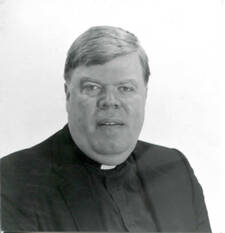Faculty opinion is divided at the university where I teach. Some faculty members permit electronic devices to be used during their classes. Others, including myself, have banned them. In fact, the longer I teach the more I am convinced that “chalk & talk” is exactly what Socrates ordered.
Last week, I was walking through one of our science buildings. Through a door window I could see a chemistry class in session, but I could not hear it. The instructor was enthusiastically lecturing, using a power-point presentation, on proteins. I could see the laptops opened by the students in the last row of the amphitheater. The computer screens displayed a football game, headline news, Lindsay Lohan, e-mail, Alec Baldwin and Oprah. In fact, we had two Oprahs, miraculously giving the same chemistry lecture while simultaneously wearing a purple dress and a black pant suit.
Entire books and seminars are now advising us on how to foster a new culture of politeness in the classroom. Undoubtedly, a good dose of Miss Manners would be helpful in correcting our academic incivility. (It might also help revive the fine art of the notebook doodle.) But issues of classroom decorum mask a deeper question: How do we learn to pay attention? How can we focus on the teacher, on our fellow students, on the issue at hand and, most important, on the truth lurking behind the issue?
Among recent philosophers, Simone Weil (1909-1943) has placed attentiveness at the center of pedagogical concern. According to Weil, attention represents the supreme act and virtue of the mind. Even when we fail to find the correct solution, an hour of attentive study of a mathematical problem places us humbly but firmly before the truth and reveals to the mind the silver vicissitudes of the quest for the truth. Attentiveness is not limited to intellectual pursuits. Authentic friendship is built on careful attention to the words, silences and needs of the other person. Social activism demands solidarity, as we choose to share the lot of the oppressed group we have carefully observed. Prayer is the ultimate act of attention, as we make the choice to listen to God, whether God decides to speak or not. “Attention is the rarest and purest form of generosity.”
Centuries ago Nicolas Malebranche (1638-1715) similarly placed attention at the heart of his metaphysical system. For Malebranche, most human beings live confused lives, erroneously believing that human nature is only a tumble of sense impressions and passions. Careful attention to the real will disclose that the most fundamental part of our nature is our rational soul and that God alone is the true cause of all mental and physical change. According to Malebranche, our confusion is moral as well as metaphysical. Only in attentiveness to the moral order established by God do we begin to glimpse the conversion required to replace our disordered passions with durable virtues. “Attention is the natural prayer of the soul.”
In retrospect, our greatest educational debt is often to the teachers who doggedly taught us to pay attention. One high school teacher showed us how to read a poem. This reading involved actually listening to, savoring, wondering about and pulling apart the verse. One college teacher taught us how to see a painting. We learned how to notice colors, contrasts and composition of which we had no previous knowledge. Another instructor showed us how to listen to a piece of symphonic music. We suddenly heard the mandolin and guitar gamboling into the fourth movement of Mahler’s Symphony No. 7. There are stretches of boredom in these acts of attention, especially in the apprenticeship stages. But the labor ultimately yields a spiritual joy of which Ms. Lohan is probably unaware.
It is hardly a secret that the key battle on any collegiate retreat is whether we will pay attention to God or dull this attention in favor of something else: our text messages, our homework, our smuggled stretch of hip-hop. Whether on retreat or not, at the center of the spiritual life is the simple courage to be quiet and to permit God to be God. The current revival of eucharistic adoration in our parishes and university chapels is in part the effort to see and hear Christ alone. The spiritual clutter disappears as attentive adoration becomes all.
Perhaps distraction at prayer is a serious sin after all.








